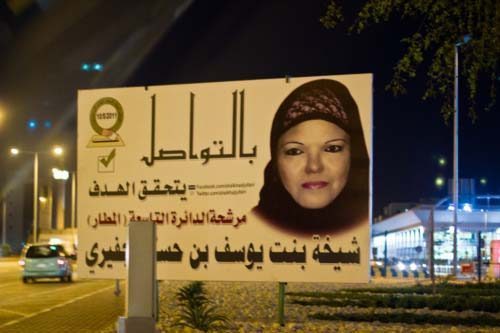
Campaign billboards are popping up across Qatar as election day approaches. But getting people excited about May 10 hasn’t been easy.
This is Qatar’s fourth election since 1999, when the Emir issued a decree that the Central Municipal Council be determined by direct elections.
The number of candidates running for the CMC this year is about the same as the last elections in 2007, but is down more than 50% from 1999.
In this election, some 117 candidates are competing for the council’s 29 seats. In 1999, 248 people threw their hats into the ring.
According to the Peninsula, a general malaise about the election has already set in.
It is because they have realised ever since that the elected body has no executive powers and its members can only make recommendations to improve civic amenities.
Indeed, the CMC does not exercise much authority. According to its website, “the role of the Council is still one of advisory and monitoring.”
Additionally, only Qataris can vote and run in these elections. Some expats take issue with this, because CMC recommendations affect their everyday lives too.
In 2007, about 13,600 people cast ballots in the CMC elections – a respectable 49% of eligible voters, according to its website. But that’s still only equivalent to about 1% of Qatar’s population.
To be fair, Sheikha Al Jefairi, the lone female member of the CMC and in the running for a third term, acknowledges that the issues she works on are for everyone, regardless of nationality.
She told the Peninsula:
For me everyone is equal. Whether he or she is a fellow Qatari or a resident, doesn’t matter. Everyone from my constituency who has a problem to address can come to me. My doors are always open.
What do you guys think? Should expats be involved in this process? Can the CMC handle more authority? Or is just the fact that Qatar holds any sort of elections enough?
Credit: Photo by Ousama Itani







